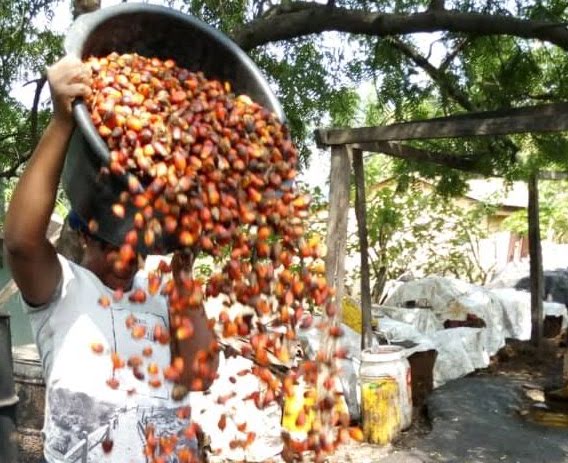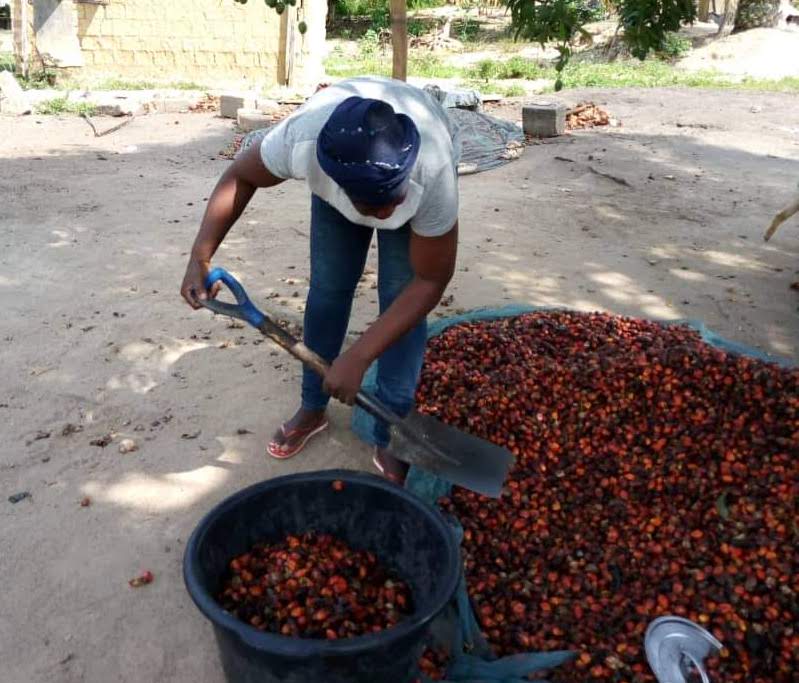
Savings and Loans Programmes are making a difference for smallholder farmers
Since the incorporation of the Village Savings and Loan Association in the programmes implemented by Solidaridad West Africa, many smallholder farmers and communities involved in agricultural activities across the region have been able to access credit to improve their livelihoods.
Limited access to credit from financial institutions and agricultural services, especially in rural areas, have always been a challenge in the agricultural sector, leaving smallholder farmers and those in the value chain, particularly women, trapped with poverty and an inability to purchase farm inputs and machinery to increase productivity.
Under the Sustainable West Africa Oil Palm Programme, which seeks to contribute to the transformation of the oil palm sector in West Africa, the Village Savings and Loan Association scheme has so far benefitted 2,817 women in 146 oil palm producing communities.
Putting knowledge into practice
Sheila Dwamena, a palm oil processor from Anweam, near Kade in the Eastern region of Ghana, said access to credit has been of great challenge in her line of work. She has had to rely on banks for loans, which she could not pay because of the high-interest rate. “We usually run at a loss. After selling our products and deducting our cost of production, and paying off part of the loans, we realize we didn’t make any profits.”

Sheila Dwamena is achieving her financial goals through the Savings and Loan Association
After encountering Solidaridad in her community and having been introduced to the Village Savings and Loan Association scheme, Sheila, along with other women in her community, received training on financial management, record-keeping and alternative livelihood.
Grouped into smaller units, they saved at least 5 cedis (0.86 euros) through the purchasing of shares on a weekly basis. Through the saving of these small amounts of money, members of the association were able to get a larger pool of money. The women were able to access credit up to three times their savings with a favourable interest rate, which allows them to invest in their businesses.
The scheme has given me and the other women some relief in accessing finance for running our businesses” -Sheila Dwamena
“We are no longer financially constrained; most of us have been able to double our purchase of fresh fruit bunches from five to ten tons after just a year with the scheme. We are also able to assess our profits, as well as losses after each production, thanks to the record-keeping training,” says Sheila.
Now able to see her children through school effortlessly, Sheila says she has also been able to purchase a piece of land through the credits she accessed from the association.
Training men to join the association
After seeing the enormous benefits the women enjoyed from participating in the scheme, men who were into oil palm farming and palm oil processing in the community showed interest in joining the association. Women leaders from the various groups trained the men to form an all-men group. The community currently has five different groups with 30 members each.
Creating access to credit
The scheme is aimed at helping women and other farmers to develop a savings culture and achieve financial inclusion. This is to enable smallholder farmers to access credit from formal financial institutions. Improving access to finance can increase women and smallholder farmers’ investment choices and provide them with more effective tools for sustainable production.
